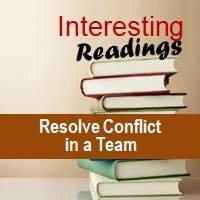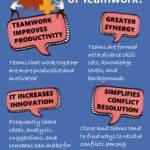
How to Resolve Conflict in a Team
Learning how to resolve conflict in a team is important for personal development and for creating a good working environment.
Conflict resolution is an important skill for helping a team come together and work towards a common goal. Conflicts and disagreements can arise from differences of opinion, miscommunications, or high stress levels when working on difficult projects.
Here are steps you can follow to help resolve conflict in a team.
Identify the conflict
Stay attentive to every member of a team and observe any potential conflicts before they become more serious. Try to ensure that team members feel comfortable discussing issues and can share problems with each other.
Strive to monitor team performance and ask questions to determine how a project is progressing. If you notice a conflict developing on your team, gather as much information as you can. Identify the type of conflict you encounter and consider your next steps.
Communicate
Communication is one of the most important aspects of conflict resolution. When you identify a conflict, listen carefully to everyone involved.
Ask detailed questions to learn all the facts. You can demonstrate empathy and show each team member that you value their input and want to find a solution that works for them.
Try to discuss possible solutions and share your feelings in a tactful and considerate manner. Consider using communication skills to strengthen team relationships and prevent conflicts before they arise.
Acknowledge the conflict
When a conflict arises, it can be tempting to avoid it or move forward without addressing it. This can lead to bigger problems in the future and might cause some team members to lose trust in the shared vision of the team.
Try to let each team member know that you understand their issues and want to help resolve them. Strive to address problems when they arise and develop open lines of communication between team leaders and team members.
Try to be solution-oriented and think of creative ways to resolve conflicts and avoid them in the future.
Follow procedures
Many companies have detailed procedures to follow when certain conflicts occur. Many human resource departments develop codes of conduct for employees to follow in the workplace.
Some workplace teams have their own rules and guidelines for employee behaviour. Strive to learn the policies in your workplace and follow them as best you can.
Some conflicts might require you to make a report to upper management or human resources. Companies develop these procedures through experience and careful consultation so they can be a helpful guide for conflict resolution.
Follow up
After you resolve a conflict, follow up with the team members involved and ensure that they understand the solution. Try to observe team performance and determine if the resolution was successful.
Listen to feedback from the team and make adjustments to your approach to conflict resolution. Strive to prevent similar conflicts from occurring in the future by developing new policies and procedures.
(Reference: https://ca.indeed.com/career-advice/career-development/how-to-resolve-conflict-in-a-team)


